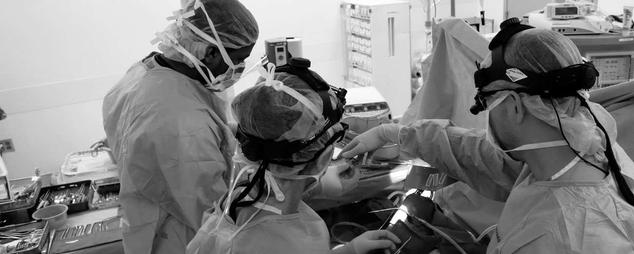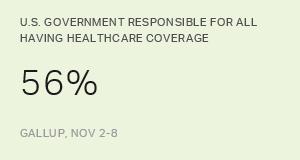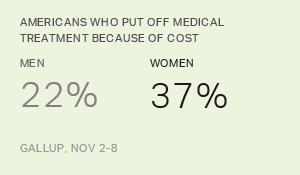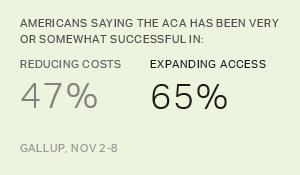Story Highlights
- 71% say the system is "in a state of crisis" or "has major problems"
- Percentage has stayed within a seven-point range (67% to 74%) over last decade
- Republicans have become more critical in past decade
WASHINGTON, D.C. -- Seventy-one percent of Americans believe the U.S. healthcare system is "in a state of crisis" or "has major problems," the same percentage who felt that way a few months before the Affordable Care Act was passed seven years ago.
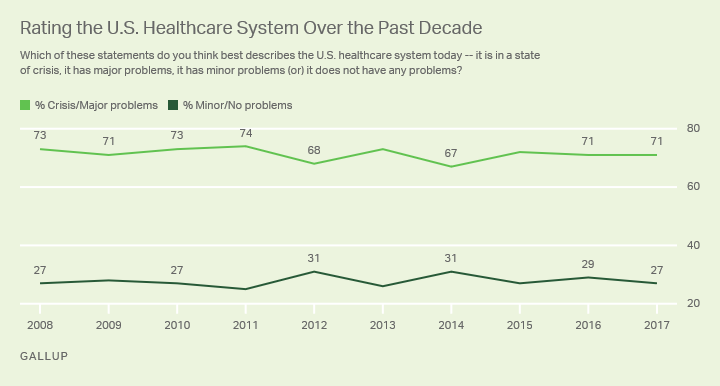
The past decade has been marked by an ongoing political struggle between Democrats, who pushed the ACA through in 2010 -- when they controlled Congress and the White House -- and Republicans, who have tried in vain to repeal it this year. But in spite of the fundamental changes the ACA has made to the nation's healthcare system, the overall percentage saying the healthcare system is "in a state of crisis" or having "major problems" has moved little from year to year.
The combined percentages saying the nation's system is in crisis or is having major problems has stayed in a seven-percentage-point range (from 67% to 74%) over the past 10 years. The number saying "crisis" has ranged from 14% to 21%, and the range for those saying "major problems" has been between 50% and 59%.
The stability of attitudes about the healthcare system, during a decade when the issue was a key factor in three presidential elections and played a major role in the Republican takeover of the House in 2010, can also be seen in the public's views on healthcare costs and quality.
In Gallup's annual November Health and Healthcare surveys from 2008 to this year, the percentage rating the quality of healthcare in the nation as excellent or good has never risen above 62% or fallen below 53%. During the same period, no fewer than 19% and no more than 26% have said in any year that they were satisfied with the total cost of healthcare in the U.S.
Overall Views Stable, but Democrats' and Republicans' Views Have Flipped in Past Decade
Though there has been little change over the past decade in the overall percentages of Americans saying the U.S. healthcare system is in crisis or has major problems, the views of Republicans and Democrats have shown significant movement in response to elections and the battles over the ACA. Republicans became more critical after the enactment of the ACA, which Congress passed without a single Republican supporting it in the House or the Senate. Democrats became more likely to describe the system as having minor problems or no problems at all.
In 2009, the year before the ACA passed, 84% of Democrats and those who lean toward the Democratic Party described the healthcare system in the U.S. as "in a state of crisis" or having "major problems," compared with 58% of Republicans and Republican leaners. In last year's poll, taken a week after the presidential election, 63% of Democrats and leaners said "crisis" or "major problems," compared with 80% of Republicans and leaners. With Republican Donald Trump having replaced Democrat Barack Obama in the White House in January, the percentages have switched places again: 76% of Democrats and leaners now say "crisis" or "major problems," compared with 71% of Republicans and leaners.
The net result of these shifts: Each party's movement in one direction has canceled out the other party's movement in the opposite direction, leaving the vast majority of Americans still unhappy with the way the healthcare system works.
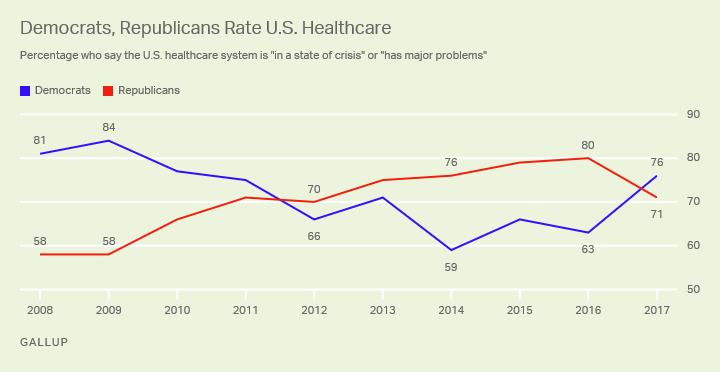
Implications
Though Republicans are less likely to judge the healthcare system harshly now that the occupant of the White House is a Republican, a strong majority still see it as deeply flawed. So do most Democrats, even though the law crafted by their party has so far survived Republican attempts to repeal it.
Leaders trying to create a healthcare system with broad support face tough challenges. Not only do the country's two main political parties differ fundamentally on what to do, but they also have major intraparty differences.
Republicans are split between those who want to repeal the ACA and those who want to modify it. Meanwhile, Democrats are poised for a fight between those who favor it and those who want to toss it in favor of a single-payer system. It is therefore unlikely that battles over the nation's healthcare system will be resolved or that the nation at large will fully embrace any action Congress and the president take in the near future.
Survey Methods
Results for this Gallup poll are based on telephone interviews conducted Nov. 2-8, 2017, with a random sample of 1,028 adults, aged 18 and older, living in all 50 U.S. states and the District of Columbia. For results based on the total sample of national adults, the margin of sampling error is ±4 percentage points at the 95% confidence level. All reported margins of sampling error include computed design effects for weighting.
Each sample of national adults includes a minimum quota of 70% cellphone respondents and 30% landline respondents, with additional minimum quotas by time zone within region. Landline and cellular telephone numbers are selected using random-digit-dial methods.
View survey methodology, complete question responses and trends.
Learn more about how the Gallup Poll Social Series works.
